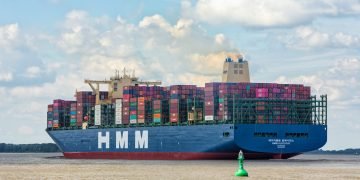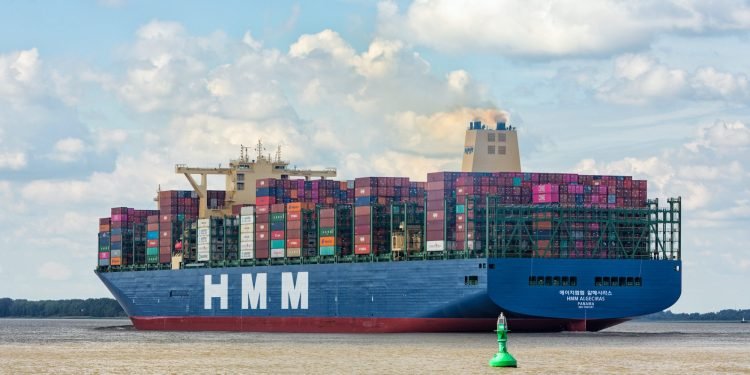By Amir Chafick
March 4, 2025 – The Logistic News
In a strategic move to safeguard South Korea’s export sector, Hyundai Merchant Marine (HMM) and other key carriers are rolling out specialized rate and space agreements to support small and mid-sized exporters. With rising freight costs and limited cargo capacity threatening trade flows, this initiative aims to level the playing field for smaller businesses in the global market.
A Critical Move for South Korean Exporters
As large shipping alliances continue to prioritize high-volume clients, smaller exporters have struggled with accessing affordable freight options. HMM’s decision to offer fixed-rate contracts and guaranteed shipping slots ensures that South Korean businesses remain competitive in international markets.
“We recognize the challenges SMEs face in securing space and managing logistics costs,” an HMM spokesperson told The Logistic News. “These agreements are designed to provide stability, enabling smaller exporters to maintain their global presence.”
How This Agreement Benefits South Korean Trade
The newly implemented agreements will provide:
✅ Predictable freight costs to counter market volatility.
✅ Dedicated cargo space on critical shipping routes.
✅ Enhanced digital booking platforms for improved logistics management.
This initiative is set to ease supply chain pressures and ensure continued access to international trade lanes for thousands of South Korean exporters.
A Turning Point for the Global Shipping Industry
HMM’s approach marks a significant shift in maritime logistics strategy, as shipping lines recognize the importance of supporting small businesses. Analysts suggest that competing carriers may follow suit, adjusting their pricing models to maintain market share in the SME segment.
“This move highlights the changing dynamics of the shipping industry,” noted an industry expert. “By focusing on inclusivity, HMM is setting a new precedent for global trade.”
Challenges & The Road Ahead
Despite the positive outlook, some challenges remain:
- Freight demand fluctuations could impact rate stability.
- Ongoing port congestion may pose operational hurdles.
- Other carriers’ responses could lead to new market shifts.
As South Korea’s government explores additional measures to strengthen trade logistics, this initiative could be the first of many steps toward a more resilient export framework.
With HMM spearheading efforts to redefine freight accessibility, this development is expected to reshape South Korea’s role in global trade.
For more exclusive insights on maritime logistics and trade, stay connected with The Logistic News.





















